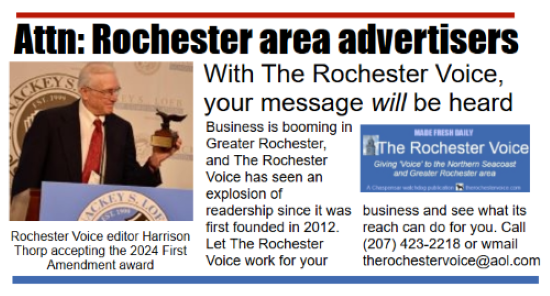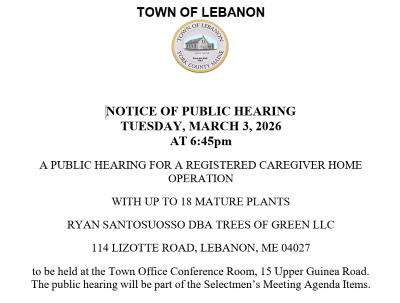Health care costs are rising in New Hampshire and hospital consolidation may be adding fuel to the fire. Now, more than ever, it is critical that the Health Care Consumer Protection Advisory Commission use the Health Care Consumer Trust Fund to find long-term solutions that keep health care costs at bay for Granite Staters.
In 2023, the New Hampshire Legislature created the Health Care Consumer Protection Trust Fund (RSA 7:6-g), which collects all state proceeds generated by, for example, one hospital's merger with another. The Health Care Consumer Protection Advisory Commission (RSA 7:6-h) is the governing body tasked with administering, managing, and expending the Fund. The Commission is required, by law, to expend the Fund solely for the purpose of benefiting health care consumers in the state.
To understand the impacts of health care consolidation in the Rochester area, the Commission will be holding a public meeting at the Rochester Public Library's Community Room (65 South Main Street, Rochester, NH 03867) on Wednesday, May 28, 2025 from 4:30 P.M.-6:30 P.M. There will also be a virtual link and videoconferencing number to join the meeting, available on the Commission's website. The Commission is seeking comments and health care stories from Rochester-area residents who have been affected by Frisbie Memorial Hospital's merger with HCA Healthcare. Specifically, the Commission has posed three questions:
How has HCA's acquisition of Frisbie Memorial Hospital impacted your health care, specifically on areas such as cost, access, quality, and transparency?
How is primary care access in your community? Has anything changed?
How could the Commission address consumers' health care concerns?
The State of Health Care Costs in New Hampshire
The Commission's meeting comes at a focal point for New Hampshire; health care costs are continuously rising and providers are consolidating. The New Hampshire Consumer Healthcare Experience Survey, a recent survey that New Futures conducted in partnership with the Healthcare Value Hub at Altarum, revealed alarming statistics about the health care landscape in our state. To put it simply, Granite Staters are struggling to afford health care and they worry about rising health care costs.
The consequences of high costs reach far beyond individual suffering. When New Hampshire residents delay preventive care or skip necessary treatments, minor health issues can escalate into major ones, ultimately driving up costs for everyone and straining our entire health care system. More than 40% of survey respondents reported they are already struggling to pay their medical bills, creating a cascade of financial hardship that ripples through our communities.
The burden of surprise medical billing further compounds this crisis. Thirty-two percent of New Hampshire residents have been blindsided by unexpected medical bills in the past year, and even more alarming, one-in-five of these billing issues remain unresolved. Some New Hampshire residents are even going without health insurance due to high costs. Nearly half of uninsured Granite Staters cited high costs as the main reason for going without health insurance, far exceeding other reasons like not needing coverage or not knowing how to get it.
These aren't just statistics-they represent thousands of New Hampshire families putting off critical medical care, rationing or skipping life-saving medications, and making impossible choices between their health and other essential needs.
To further complicate this issue, hospital consolidation has the potential to reshape our health care landscape. The recent approval of Catholic Medical Center's sale to HCA Healthcare, a for-profit organization based in Nashville, Tenn., adds another layer of uncertainty to an already challenging situation. Hospital consolidation can bring changes to health care delivery and raise important questions about the ongoing cost and quality of care available in our communities.
Several studies have found that hospital and health system consolidation lead to higher health care spending, which could increase costs for families, employers, states, and public programs like Medicare and Medicaid. According to a study published by the American College of Surgeons in 2024, mergers and acquisitions of U.S. hospitals and health systems rarely improve the quality of care delivered. The growing footprint of HCA in New Hampshire poses another specific concern for our state--reduced bargaining power for health plans. While health plans try to keep hospital prices low, health plans' ability to successfully hold down prices is limited where they have less market power than hospitals. HCA now owns four hospitals in the state (Portsmouth Regional, Parkland Medical, Frisbie Memorial, and CMC). HCA's strong foothold means less bargaining power for health plans, which, in turn, may contribute to higher hospital prices.
New Hampshire is trending towards higher health care costs, and consumers are already feeling the detrimental effects. Health care consolidation may exacerbate these costs. With these statistics in mind, I encourage you to attend the Commission's May 28th meeting and share your health care story. Let the Commission know that New Hampshire health care consumers need a long-term solution to stem the tide of rising costs.
Sam Burgess, Esq., is the health care policy coordinator for New Futures















